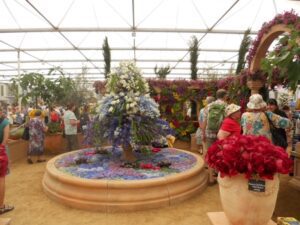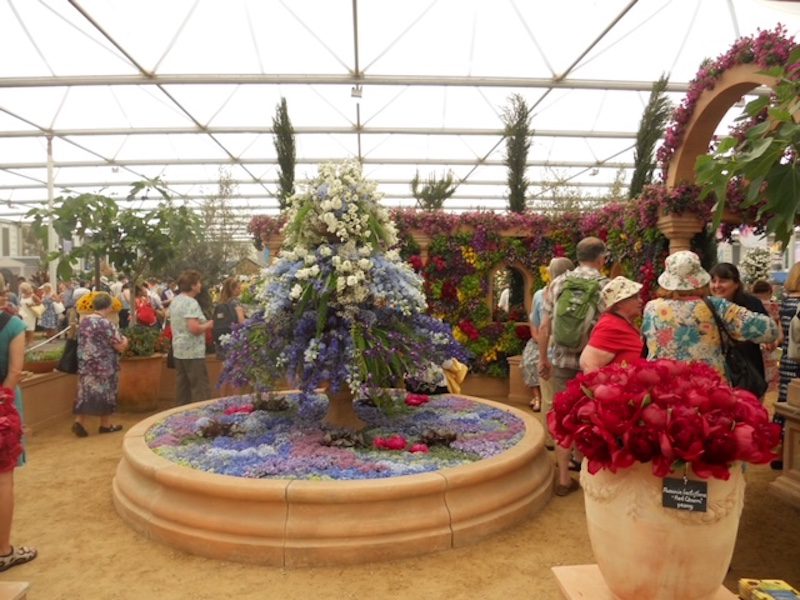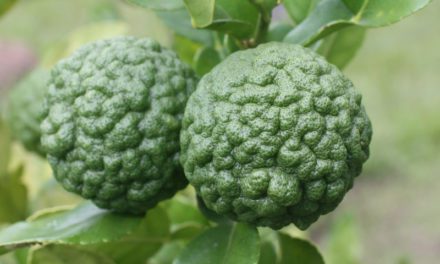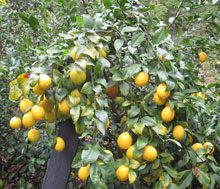
Chelsea Flower Show
I am in a dither right now. At least, more than usual. I am preparing to present a webinar on zoom for an international audience of horticulturists and garden enthusiasts. Since most of the participants will be from the United Kingdom it is necessary do some conversion in temperature, measurements, and spelling. Most of the world uses the Celsius temperature format while we use Fahrenheit. I also need to exchange feet for meters and mind that I use the “King’s English” for spelling.
While preparing for this zoom meeting, I have been musing about the other differences between the United States and the U.K as far as gardening is concerned. To my mind the most striking distinction is that Britain has only one over-seeing horticultural organization and that is the RHS or Royal Horticultural Society founded in 1804 in London. The RHS administers almost all gardening activities within the U.K. It has research facilities, maintains large gardens open to the public, promotes horticulture through its flower shows, runs a competition called Britain in Bloom, and has numerous educational programs (or programmes to be correct). The RHS publishes a monthly magazine simply called “The Garden.” I subscribe and it is fascinating in all regards in keeping me up to date with the latest research and new varieties. The RHS also awards certain plants an Award of Garden Merit (AGM) which means that it meets certain standards such as viability, disease resistance, and sustainability in that it is not invasive and provides either aesthetic or ecological value.
We have no such organization in the United States. Although we do have horticultural societies such as the Pennsylvania Horticultural Society founded in 1827, these only deal with a certain city or region. Instead, we have University Extension Services. The Extension services were begun in the late 1800’s by various acts of Congress and used land grant universities to bring educational services to farmers, ranchers, and home gardeners at the local county level. Our land grant university is Clemson and our local Extension Service that serves Beaufort and Jasper counties is located at 18 John Galt Road in Beaufort. Each state has its own land grant university that offers extension services, has research facilities, and courses in various agricultural and horticultural fields. Each state is different in its focus. South Carolina might emphasize crops and other plants that can be and are grown here. On the other hand, Ohio State University obviously is not concerned with growing cotton. Master Gardener training classes are held in each state and conform to that state’s growing conditions. You cannot earn a Master Gardener’s Certification in one state and automatically transfer it to another.
Because the United States is so large with so many growing zones, the state system seems to work although there is not a central organization other than the U.S. Department of Agriculture to coordinate horticulture and research nationwide. Instead of awarding a certificate of a merit to a plant, we have a private organization named the Perennial Plant Association that awards the Perennial Plant of the Year Award to only one plant each year. You will notice that plant catalogs might list something as a PPA Plant of the Year. They also are beginning to indicate whether a plant is also an AGM.
Alas, our fragmented system does not allow for large flower shows like Chelsea. Chelsea is a truly awe -inspiring experience featuring plant vendors under the world’s largest tent – the size of a football field (see photo). There are show gardens all vying for a coveted Gold Medal. The reigning monarch and dignitaries have their own day to visit. I have been fortunate to go twice and have tickets for this year’s show which is always held the third week in May when gardens look their best. Chelsea is not the only flower show sponsored by the RHS. There are several others all designed to bring educational awareness of horticulture to the British public. Here, we must do what we can do on our local level.
And do it, we try. We will probably never be as “garden mad” as the Brits, but in our own way our Lowcountry Master Gardeners Association tries to educate and enlighten the public on the joys of gardening in a sustainable and ecologically sound way. And there are Master Gardeners all over the country who work hard at their craft and spread the word. Education is key. Don’t be afraid to visit the Clemson Home and Garden website (https://hgic.clemson.edu/) or stop by our Extension office for advice. They will do an analysis of your soil or diagnose a plant disease or pest. You do not have to be a cotton farmer to use our Extension Office although if you are, they will help you with that as well. Cheers!







